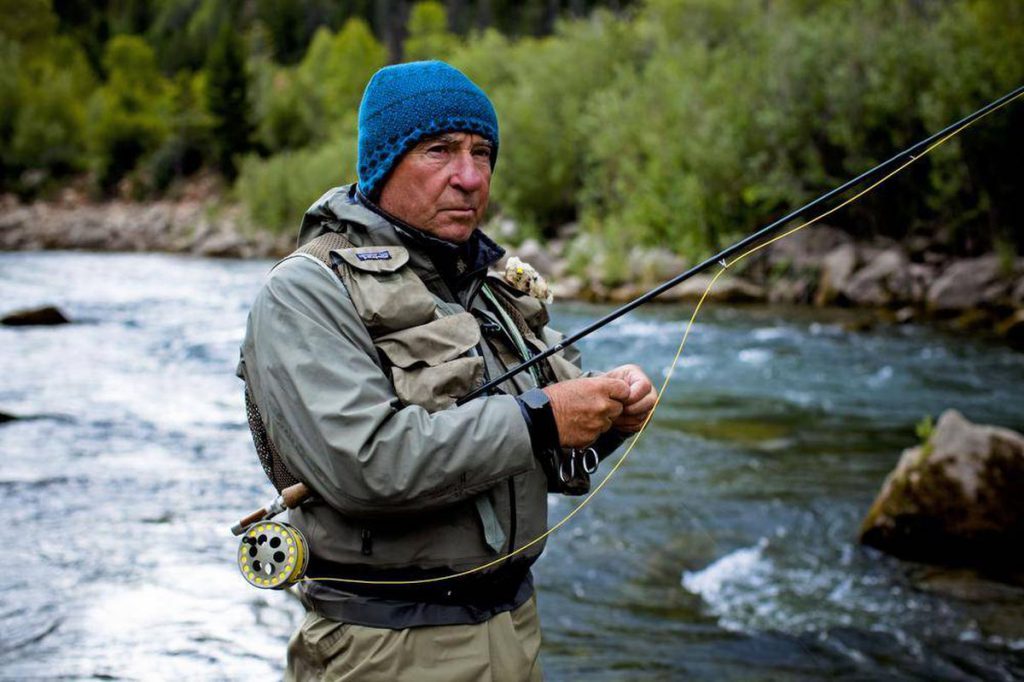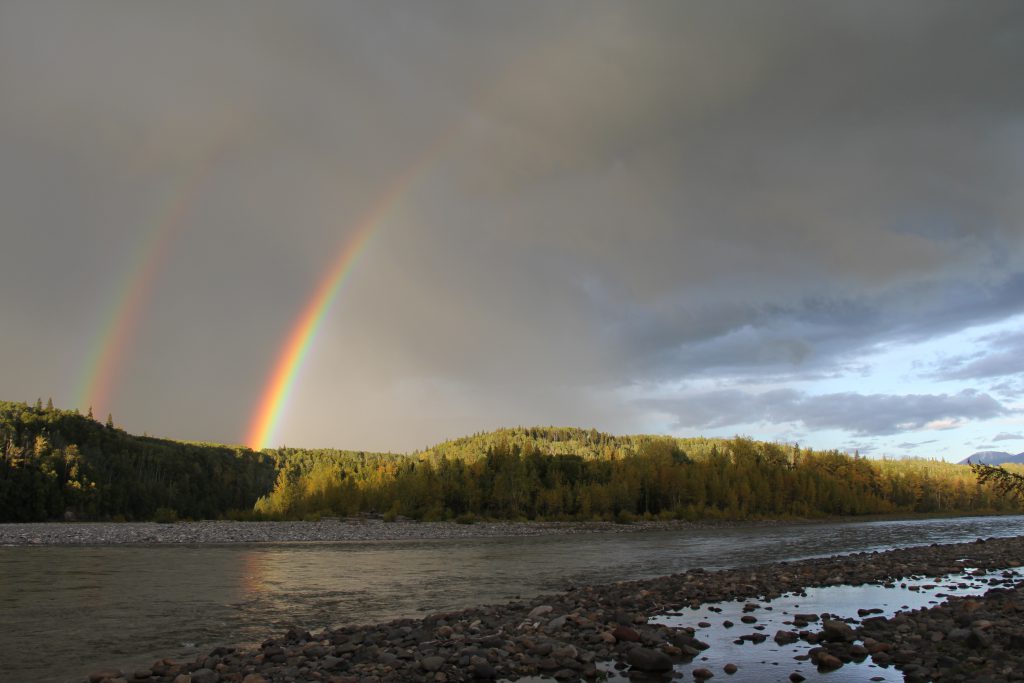Patagonia founder Yvon Chouinard has a deep personal connection to British Columbia’s Skeena watershed. In the early 1990s, Chouinard fly fished in the Skeena River, and became close to the area and the people who lived there. Even back then, Chouinard gave financial support to small conservation projects in the region. These days, the company is funding projects in Northern BC, but on a grander scale, and with on-the-ground assistance from MakeWay.
If asked to list progressive companies, Patagonia will likely come to most people’s minds. Since being founded by Chouinard in 1973, the adventure outfitting company has made a firm commitment to protecting the natural world, and this is reflected in Patagonia’s mission statement: “We are in business to save our home planet.” Chouinard co-founded the 1% for the Planet program, where businesses and individuals pledge 1% of profits, annual salary, or net worth to environmental causes. Patagonia has sued governments to stop them causing harm to natural areas. They have also, from the start of the company, had a healthy grant making program that supports grassroots environmental projects around the world.

Guiding Patagonia’s Canadian funding strategy
Initially MakeWay’s partnership with Patagonia was less formal, but nevertheless important, as they provided funding to several projects on the MakeWay shared platform. This changed in 2016, when Patagonia stepped in and helped with the Pacific Salmon Watersheds Fund, which was set up to help the conservation organizations transition from a major fifteen-year initiative of the Moore Foundation supporting wild salmon ecosystem conservation in British Columbia. Patagonia agreed to partially match a major Moore Foundation exit grant, explains Ivan Thompson, Senior Advisor with MakeWay, someone that Patagonia’s founder and staff had come to know over conservation efforts in the Skeena. Patagonia’s $1.5M commitment over a five-year period is helping the Pacific wild salmon constituency become less dependent on Moore Foundation funding.
In January 2017, MakeWay’s role with Patagonia switched to a formal advisory role that would help the company decide which projects to fund in Canada. “I make all my funding decisions alongside our advisors at MakeWay, and basically consider them employees of Patagonia in making those decisions,” says Sarah Ebe, Environmental Grants Associate at Patagonia.
“We rely on MakeWay to advise us on who’s really doing the most impactful grassroots work in the region on the issues that we are trying to address.” – Sarah Ebe
This is somewhat unusual for the company. In most other regions around the world, Patagonia has headquarters with its own employees in advisory roles. “Canada is the one region that we fund internationally where we don’t actually have employees on the ground,” says Sarah Ebe, Environmental Grants Associate at Patagonia. “We lean on MakeWay to essentially be our proxy in Canada and provide all the expertise that we would typically gather from our employees. We rely on MakeWay to advise us on who’s really doing the most impactful grassroots work in the region on the issues that we are trying to address.”

Because of a long, time-tested relationship with MakeWay, the partnership makes sense to Patagonia and increases their ability to help grassroots organizations in Canada. “MakeWay does a tremendous job of networking with folks in the region and really embedding deep into the community. Through them we have knowledge of what’s happening on the ground, which is a really really important part of our grant making philosophy. So the fact that they’re so embedded in communities is huge for us,” Ebe says.
Plus, the way that MakeWay functions holds a strong appeal to Patagonia and other international funders. Expert advisors are brought into the organization specifically for each project rather than placing existing staff into projects that don’t suit their particular area of expertise. “That has always been one of MakeWay’s greatest strengths, that it is a place where strategic advisory support can be actually developed,” says Thompson, “And that adds to the level of trust that funders have in the projects we partner on.”
The logistics of funding through MakeWay
MakeWay is set up in a way that makes investing in Canadian conservation projects a smooth process. “In addition to the advisory services that Patagonia uses, international funders can put funds into a donor-advised fund in Canada, and with the support of MakeWay distribute those funds in a fair and efficient way to organizations,” Thompson explains.

There are a wide range of projects represented on the MakeWay shared platform, and no matter how small, they seek to bring about impactful change no matter how difficult that might be, or how long it might take. The support that MakeWay gives these projects makes them nimble and efficient, and ready to receive the funding support they need to succeed – and these are exactly the types of projects that Patagonia wants to invest in.
MakeWay’s agility is something that Ebe says has been a critical aspect of the Patagonia partnership. “We are not a private foundation, and we move at the fast pace of the company,” Ebe says, “Over the past few years there have been a couple of situations where we were in a pinch and we needed something to happen really quickly. I called our advisors at MakeWay as kind of a Hail Mary and they just stepped in and made it happen in the blink of an eye. It has been tremendous to be able to rely on them to act quickly and efficiently,” says Ebe.
We are incredibly proud of the relationship that MakeWay has with Patagonia. We consider our partnership with the company to be an excellent example of how well international philanthropy can support impactful conservation work in Canada, and create real change for nature and communities to thrive together through grassroots environmental groups.
